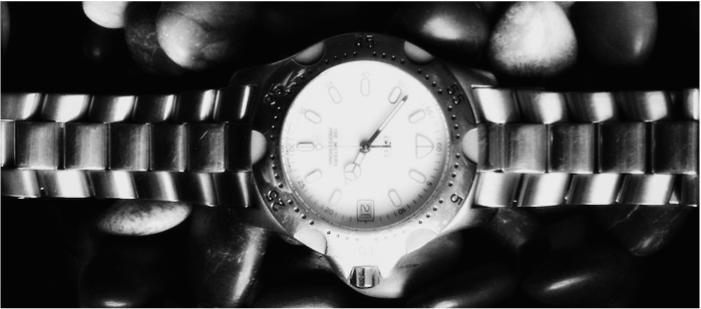|
Below is a collection of 10 ideas for how to increase the perceived hours in your day. It's not a time machine, but it’s the next best thing...
1. Don’t just read. Do. Don’t just read this article. Sure, it’s fine if you do, but if you only read it and don’t actually implement some of the ideas below, then you’ve just wasted a few precious minutes of your day on another forgettable blog entry. Sometimes I read (or publish) these blogs because I'm looking for a good distraction, but usually I am driven by a deep desire to share (and receive) positive messages and helpful life tips. There is so much useful information out there, generally for free -- there is no reason not to take advantage. 2. Recognize that you already know most of this. If a coworker or a younger person asked you for some advice on how to manage time, how to deal with a tough interpersonal situation, or how to get better at skill XYZ, I'm sure you could come up with a couple of good ideas, ideas that you have compiled after years of being human and observing the behavior of others. Nothing I share with you below is earth-shattering. But at least it's a reminder. You don't have to learn a new skill, you just have to implement something you already know (if you skipped #1, you can read it now). 3. Do the same thing, but differently. Sit in a different chair at the weekly meeting. Take a different route home. Try a new restaurant. Studies have shown that making these small changes to your routine will alter your perception of elapsed time. By spicing up your day, the experience will stand out as a unique memory instead of blurring into the routine of everyday, and in this way you can trick your mind into lengthening your day, your month, your year. At the very least, you'll make new memories and fend of boredom. Plus, it's always good to know an alternate route home. 4. Ignore your inbox for an hour. That’s right, a full 60 minutes or more if your work situation allows it (and it usually does). Listen, if it’s an emergency, the boss, client, customer will usually call. Successful people including senior corporate leaders as well as entrepreneurs rarely work from their email inbox. Instead, they prioritize their work first, then allocate a small amount of time each day to handling emails. Productivity soars, as does a sense of power over one's situation and, with that, confidence. The bane of most workers these days is the inability to focus and finish small tasks because of the constant influx of emails. Turn off the email auto-notification, and see first-hand how it impacts your daily workflow. In no time you might become one of those highly effective people who ignore unimportant emails. 5. Make a list of the 5 things you care most about. Make a list in your mind, on paper, or on your device of the five things you care most about in life. The things that really matter to you (Starbucks coffee doesn't count). Don't worry about the order. For example: family, friends, dog, writing, baking. Now, take stock of your busy schedule and ask yourself: How much time have I spent tending to these important things this week? Have I reached out to grandma recently? When playing with Fido, did I put aside my phone and give him my full attention? Did I try out a new cookie recipe? All of the other distractions in our lives will eventually fade away, but the memories of the important stuff will last a lifetime. By decreasing the number of appointments, obligations and to-do's in your life, you'll have more time in the day to focus on what truly matters. 6. Volunteer. Volunteering? How is that going to free up anyone's calendar? Okay, it might not do exactly that. But, here is the real benefit: volunteering is infinitely better than time wasted surfing the social mediasphere. Ask anyone who donates their times to the service of others -- on volunteer days, many people find their moods elevated, and they feel better about the spare time they have left that day -- they're less likely to squander it or be bored by it, and more likely to enjoy it (even if it means lounging on the couch with a good book). If you don’t volunteer regularly, consider starting, even once a month. You'll meet new people, enhance your resume, feel better about yourself, and earn a better appreciation of the free time that you do have. Plus, posting a selfie as you volunteer is a much better use of your energy and social influence than "liking" a vain celebrity's post or tweeting about the weather. 7. Delegate… thoughtfully. Delegating a task has several great benefits. First, it frees up your time to do something else (hopefully something more important). It also strengthens social bonds by cultivating trust. This applies at work as it does at home. If you don't quite trust a direct report to accomplish something competently, you can start by delegating a small sub-task, and build it up with every successful completion. But also, learn to let go. If you're heading home for dinner and your partner cannot cook, delegate a small but related task. Be specific with your instructions, but also be flexible that it might not come out exactly the way you want it -- and that's okay. If your partner asked you to complete a skill you weren't great at, you too wouldn't be perfect the first time around. Learn to count on others, but do so gradually. By delegating you will help those around you develop useful skills, and you'll earn yourself some free time in the long run. 8. Inject art into your life each day (especially if you don't consider yourself "creative") First, just stop with the "I'm not creative" story you tell yourself. Every human is creative. Not everyone is a painter, or writer, or sculptor, but everyone creates and decides and changes the world around them in some small way. There is art in the way you comb your hair, or prepare your coffee. There is art in the way you walk, the tie you decided to wear, or the nail polish you chose today. Art can have healthful benefits -- it can calm us, inspire us, provide a healthy distraction, even clear our heads. And with the smartphone, you can make art every day. Take a photo of the sky. Draft a haiku. Write a short journal entry in your Notes. Think about the title you'd use if you wrote an autobiography. Take note of the beautifully arranged food of your coworkers. Allow art into your life every day. 9. Self-impose technology breaks. Some folks have taken very long breaks from mobile devices, and they usually report a lot of positive side effects of such experiments. Besides, our eyes need an occasional break from the glow of screens. But you don't need to eschew the internet for 12 months. Start out with one hour in the evening, perhaps before you go to bed. Or a full day on the weekend, if you're up to it. Because you're not busy hemorrhaging your time on surfing the web, you'll find yourself with an abundance of time (and energy) on your hand. If you want to do this but lack the discipline, consider trying this with a buddy. Text your friend at an agreed-upon hour before the start of the technology break, and then reconnect with them once it's over. You can talk with each other about the withdrawal symptoms you experienced, if any. 10. Pick one thing from this list. Trying to do everything at once is usually not the best option. In fact, that’s probably overwhelming and ultimately counterproductive. Besides, multitasking has been shown to be bad for our productivity, and bad for our brains. If there is an idea embedded in this article that resonates with you more than the others, give it a shot. You can set up a reminder in your calendar (on your phone, or in an old-school agenda, if that's how you roll) to come back to this item in exactly one week to see what progress you’ve made. If next week rolls around and you’ve completely forgotten about it, don’t give up. Try again. Tomorrow is another day. Use it wisely. As a closing thought, I just learned that the average US life expectancy is just about 28,000 days. What will you do with yours? Comments are closed.
|
About DawidPoly-creative and complex human who fills up his days as a career coach, executive coach, resume writer, and personal brand / communications specialist. Conqueror of excuses and doubts. Bakes a mean éclair and snaps thought-provoking photos, but is best known for helping clients achieve personal + professional growth and fulfillment. Archives
May 2024
Categories
All
|


 RSS Feed
RSS Feed